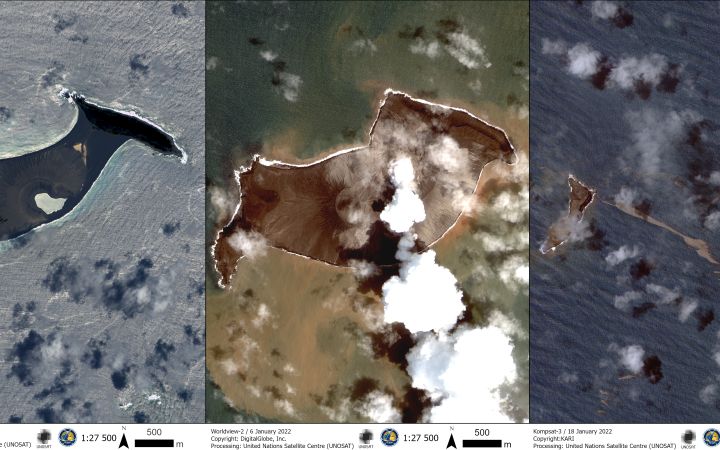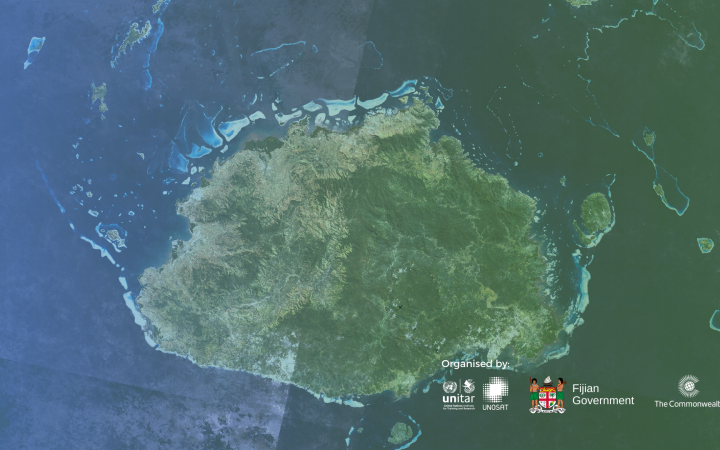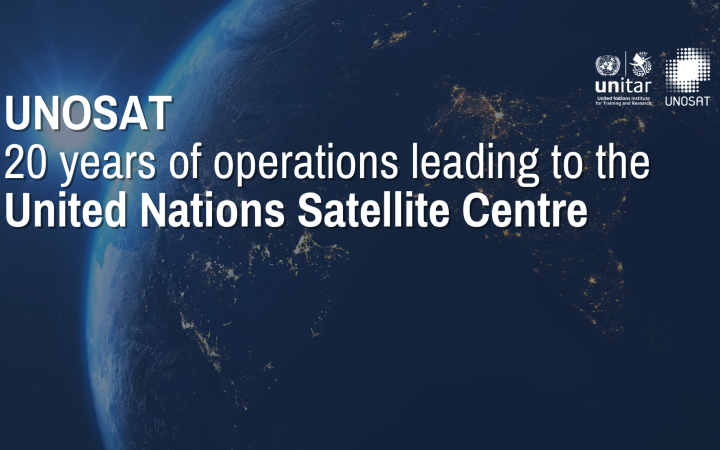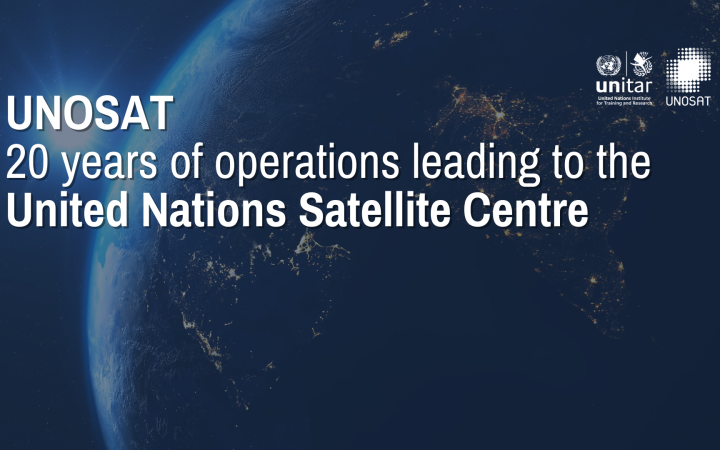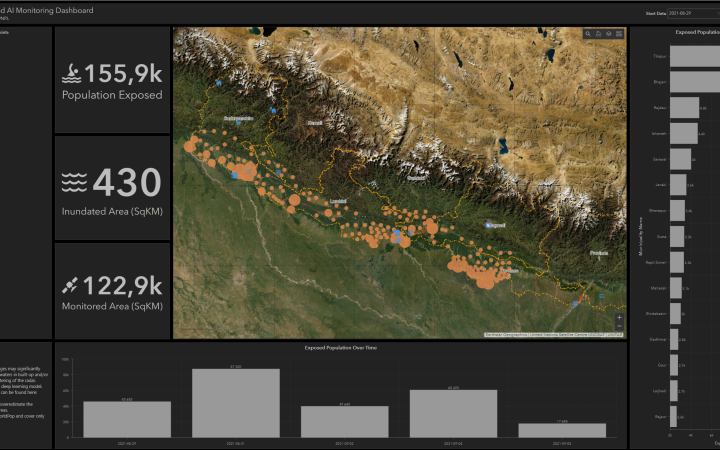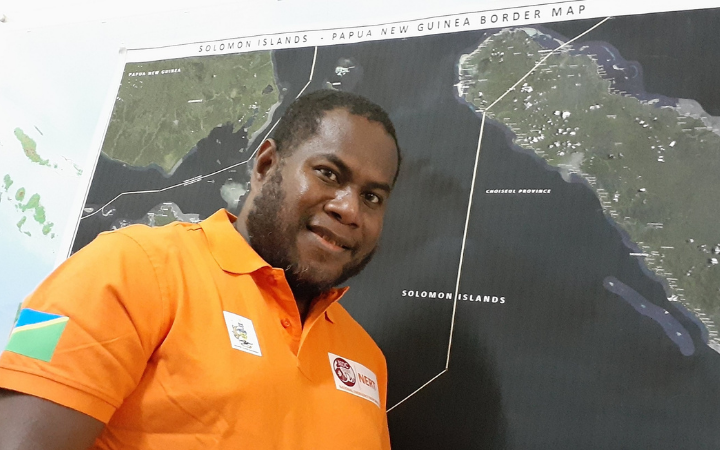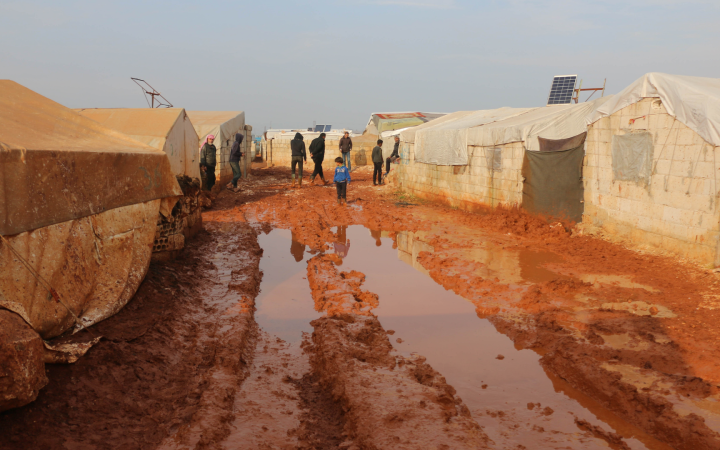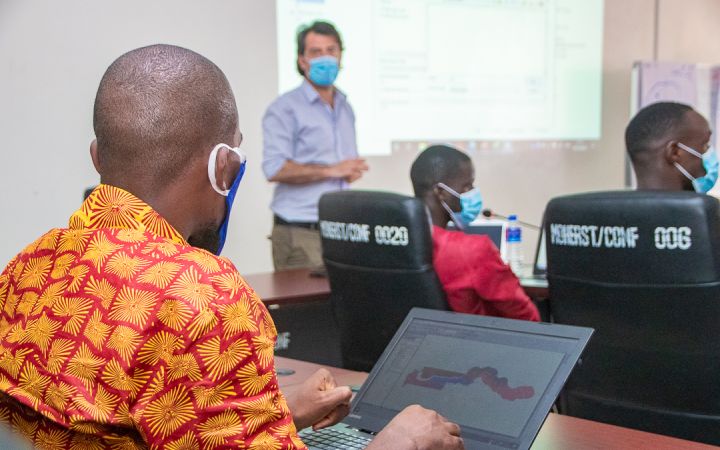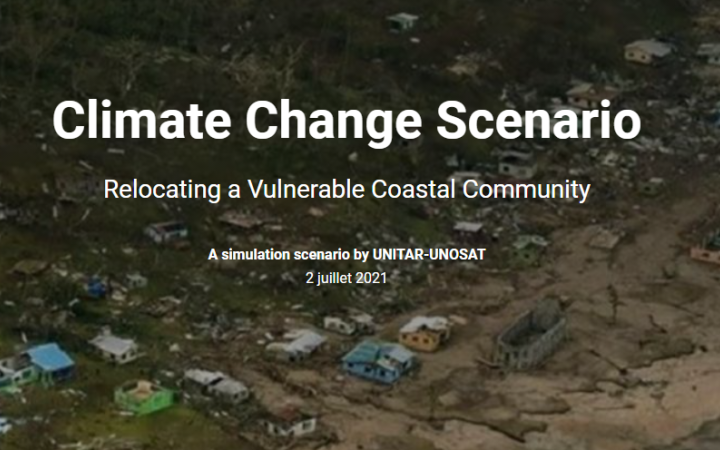Displaying 71 - 80 of 185
18 January 2022, Geneva, Switzerland - On Saturday 15th January, the ongoing volcanic eruption of Hunga Tonga-Hunga Ha’apai triggered a tsunami across the Pacific. The UNOCHA Regional Office for Asia and the Pacific swiftly contacted the United Nations Satellite Centre (UNOSAT) to request the activation of its Emergency Mapping service over Tonga.
December 3rd, 2021, Geneva, Switzerland - The ambitious agenda of COP 26 to accelerate action towards and beyond the goals of the Paris agreement may have been a let-down for most people. For the United Nation Satellite Centre (UNOSAT), it was also an opportunity to promote once more the added value of satellite-derived information for improving climate resilience.
26 November 2021, Geneva, Switzerland – On Thursday 25th November, the United Nations Satellite Centre (UNOSAT), hosted an online event to celebrate 20 years of operations. The great discussions and testimonies from partners only scratched the surface of the tremendous work achieved so far, and what is to come.
On Thursday 25th November 2021, UNOSAT is celebrating the 20 years of operations leading to the United Nations Satellite Centre with an online event.
In South Asia, the monsoon season started early and strong this year. Nepal was particularly hit by heavy rainfall in June 2021: flooding and landslides were reported in many parts of the country and affected thousands of families. When the Rapid Mapping service was activated, the UNOSAT FloodAI pipeline was deployed and all products were sent to the Dashboard, turning it into a one-stop-shop for real-time evidence-based decision-making
“One of the important technical backstopping we’ve received is the lockdown maps which have helped the NDMO’s camp sector committee identify potential quarantine stations.”
John Wain, Senior Emergency Shelter Officer at the United Nations High Commissioner for Refugees (UNHCR), recalled the evolution of their work and how UNOSAT supported them with satellite imagery analysis to better plan for new settlements.
Stronger cyclones, derailed seasonal floods, large forest fires, rising sea levels…, the climate crisis affects every part of human life and development. It is the most pressing issue to protect vulnerable populations and ensure a safe and sustainable future for all.
With the hackathon, Enas became more inspired to continue promoting healthier lifestyles and cities’ renaturalization with her students. She has replicated some of the methodologies from the hackathon in her classes.
9 August 2021, Geneva, Switzerland - Coastal communities in Small Island Developing States continue to suffer from the impacts of various hazards like flood, tropical cyclones, tsunami, and erosion. This case study presents how a relocation scenario can be simulated using various spatial data and information available through the CommonSensing solution that UNOSAT provides.


